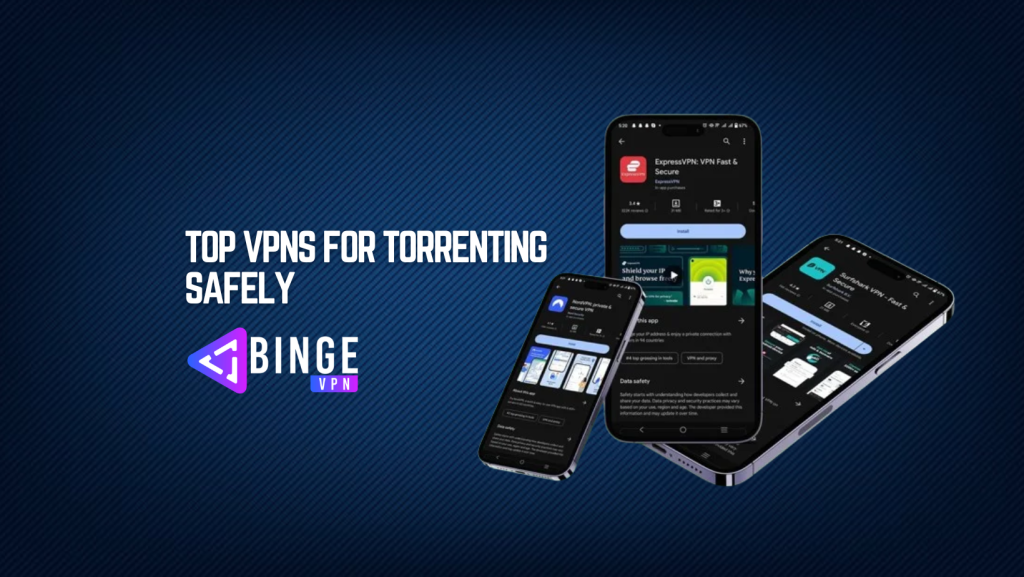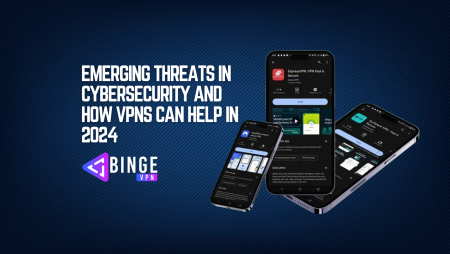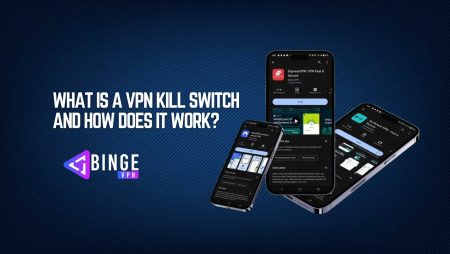Torrenting is one of the most popular methods for sharing and downloading files over the internet. Whether it’s music, movies, games, or software, torrenting allows users to access large files quickly through peer-to-peer (P2P) networks. However, this convenience comes with risks. When torrenting, your IP address and personal data are exposed to other users on the network, making you vulnerable to hacking, surveillance, and potential legal action.
Using a Virtual Private Network (VPN) is one of the most effective ways to torrent safely. A VPN encrypts your internet traffic, masks your IP address, and helps protect your privacy, ensuring that your identity remains secure while you download files. In this blog, we’ll explore why VPNs are crucial for safe torrenting, what features you should look for, and the top VPNs that are best suited for torrenting.
Why You Need a VPN for Torrenting
While torrenting is a legal technology, the content you download might not always be. Many countries have strict copyright laws, and downloading or sharing copyrighted content without permission can lead to fines, legal action, or even criminal charges. Additionally, torrenting exposes your IP address to others on the network, making it easy for malicious actors to track your activities or exploit vulnerabilities.
Here’s why a VPN is essential for safe torrenting:
1. Privacy Protection
When you torrent, your IP address is visible to everyone in the peer network. This means that your location, internet service provider (ISP), and browsing habits can be easily tracked by other users, hackers, or even government agencies. A VPN masks your real IP address by rerouting your traffic through its servers, ensuring your identity stays private.
2. Avoid Throttling by ISPs
Many ISPs monitor torrenting activity and throttle your internet connection if they detect that you’re downloading large files. This results in slower download speeds, frustrating interruptions, and longer wait times. A VPN encrypts your traffic, preventing your ISP from detecting that you’re torrenting and, in turn, stopping them from throttling your connection.
3. Bypass Geo-Restrictions
Some torrents and P2P networks are restricted based on your location, meaning you may not have access to certain files or networks depending on where you are. A VPN allows you to connect to servers in different countries, bypassing geo-restrictions and unlocking torrent sites and content that may be blocked in your region.
4. Avoid Legal Repercussions
Torrenting copyrighted material without permission is illegal in many countries. VPNs help reduce the risk of legal action by hiding your IP address, making it more difficult for copyright enforcement agencies to track your activities.
5. Protection Against Malware and Hackers
Some torrent files can contain malware, spyware, or viruses that can infect your device. A VPN adds an additional layer of security by encrypting your connection and making it harder for malicious actors to target you.
What to Look for in a VPN for Torrenting
Not all VPNs are suitable for torrenting, and some don’t even allow it. Before choosing a VPN, it’s essential to understand the key features that make it ideal for safe and efficient torrenting. Here’s what you should look for:
1. P2P Support
The first and most important factor to consider is whether the VPN supports P2P file sharing. Some VPNs actively discourage or block torrenting on their servers, while others have dedicated servers optimized for P2P traffic. Ensure that the VPN you choose supports P2P activities across multiple servers.
2. No-Logs Policy
A no-logs policy means that the VPN provider does not track or store any information about your online activities, including your IP address, browsing history, or download data. This is critical for privacy, as it ensures that even the VPN provider cannot hand over your data to third parties or authorities.
3. Strong Encryption
Look for VPNs that use strong encryption protocols such as AES-256. This level of encryption ensures that your data is virtually impossible to decrypt, protecting your identity and activities from prying eyes.
4. High-Speed Servers
Torrenting often involves downloading large files, which requires a fast and stable internet connection. Choose a VPN with a reputation for high-speed servers and low latency to avoid slow download speeds.
5. Kill Switch
A kill switch is a crucial feature for torrenting. If your VPN connection drops unexpectedly, the kill switch will automatically disconnect your internet connection to prevent your real IP address from being exposed. This helps maintain your anonymity even in the event of a VPN failure.
6. Wide Server Network
A VPN with a large and diverse network of servers in different countries offers greater flexibility for torrenting. You’ll be able to connect to servers in regions where torrenting is legal or less restricted, and you’ll have more options for avoiding congested servers.
7. DNS Leak Protection
DNS leaks occur when your DNS requests (which are responsible for translating website addresses into IP addresses) bypass the VPN, exposing your real IP address to your ISP or other third parties. A good VPN should have DNS leak protection to ensure that all your internet traffic is routed through the VPN.
8. Affordable Price
While there are many free VPNs available, most do not provide the level of privacy, speed, or security needed for safe torrenting. Paid VPNs tend to offer more robust features and better customer support, making them a better option for torrenting.




